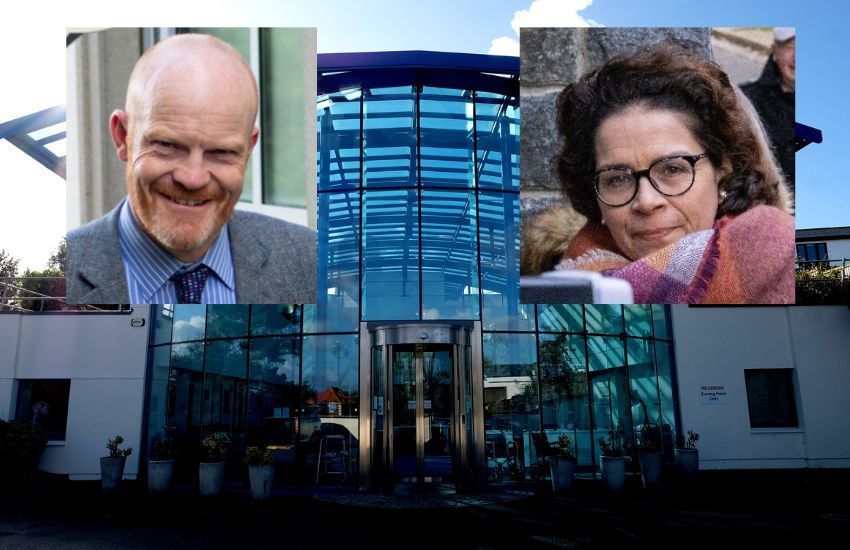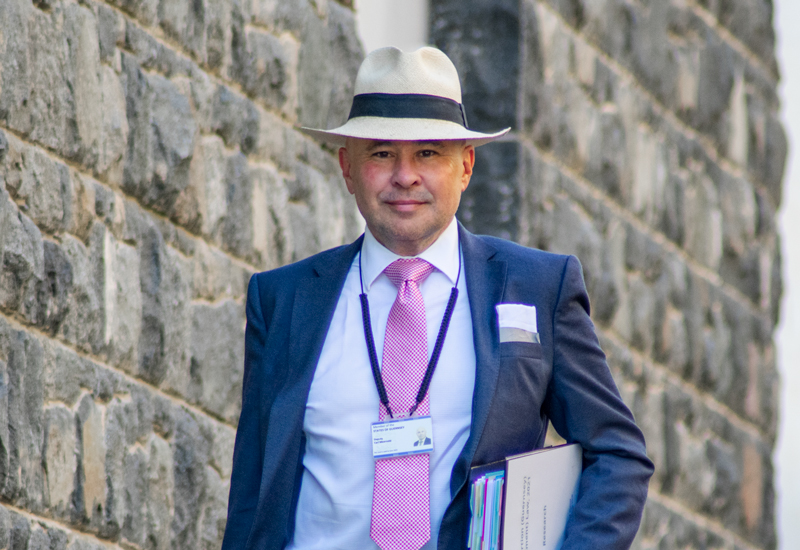


Persistent attempts by Deputy Andrea Dudley-Owen to get an update on official complaints being faced by Deputy Gavin St Pier were blocked by the Bailiff amid concerns that the confidentiality of that process had been breached.
Code of conduct complaints are meant to remain confidential unless they are upheld and a report is then published.
The issue was complicated by the fact that Deputy St Pier revealed in July that he was subject to three code of conduct complaints - by Dr S Bohin, the Medical Specialist Group and the Guernsey and Alderney branch of the British Medical Association.
That followed comments he made in a speech earlier in the year about what he said are failings in the safeguarding processes in the children’s healthcare system.
Deputy Dudley-Owen pressed to find out when the hearings would report, naming Deputy St Pier, in a question to States Assembly and Constitution Committee president Carl Meerveld, who had just given a general update to the Assembly about his committee’s work.
It prompted Deputy Lyndon Trott to ask the Bailiff to intervene to stop the line of questioning.
‘There are some live actions at this moment with regards to certain complaints,” he said.
“A member of this Assembly has been named, I think incorrectly. Clearly there is an ongoing process and therefore any questions pertaining to that ongoing process are not in the best interests of natural justice. I'm not absolutely certain which rule it is, but I'm absolutely certain that we should not be considering this matter in this way.”

Pictured: Deputy Lyndon Trott.
Bailiff Richard McMahon asked Deputy Dudley-Owen if she still wished to put the question to the president - she said “yes please”.
Mr McMahon pressed again: “Do you understand in doing so that what you have done arguably is bringing into question the privilege to which Deputy St Pier would be entitled, bearing in mind the terms of the Code of Conduct for States members?”
Deputy Dudley Owen said she was simply asking when the hearings would report.
But Mr McMahon pointed out that it was by reference to a member where the Code of Conduct says that the matter is confidential until such time as it is published.
Deputy Dudlley-Owen shifted tack slightly: “If I repeat the question, and I replaced Deputy St PIer’s name with a member instead, does that make it any better?”
But the Bailiff was unimpressed: “The damage has potentially already been done. The difficulty arises in the reference to particular complaints that ought not to be known because of the terms of the Code of Conduct.”

Pictured: Bailiff Richard McMahon.
He offered her another route to ask broadly about the progress of matters relating to propriety and conduct of States members.
But she declined that: “I'm asking specifically about the progress on these particular hearings which have been already publicly stated by the member himself.”
After further discussion the question was ruled out.
“The difficulty with the issue is that it's not a matter once a complaint is made under the Code of Conduct that goes to the States Assembly and Constitution Committee until such time as the panel that's appointed under the Code of Conduct [reports] and therefore I'm going to disallow the question.”
It did not stop other members pursuing the issue further.
Deputy Chris Blin asked how long a code of conduct investigation should last.
Deputy Meerveld said it depended on the complexity of the case.
“There is nothing specified in the rulebook that says how long you should be, but there is an old adage, ‘justice delayed is justice denied’. I think a prompt response to any complaint is necessary, both to satisfy the complainant and let them know whether their complaint was justified and also for the complained against to make sure that they don't have complaints hanging over them for a long periods.”

Pictured: Deputy Carl Meerveld.
Deputy Sasha Kazantseva-Miller said that rule 29 of the Code of Conduct says that in the interest of natural justice, a complaint should be made to the panel in private and not publicised until the complaint has been heard and decision communicated to the parties involved.
“Could the president of SAC explain how a member of the Assembly could know that there are complaints and the nature of those complaints, but also how could the president of SAC be in any position to actually give the Assembly an update on the status of those complaints?”
Deputy Meerveld said that was obviously referring to the question earlier by Deputy Dudley-Owen.
“In this particular case, Deputy St Pier made a public statement on the 18th of July saying that complaints have been made by Dr Bohin, the Medical Specialist Group, and Guernsey and Alderney branch of the British Medical Association.
“Therefore, it was publicly made by the member in question in this instance, but normally the code says you should keep complaints private.
“As for commenting on the process, Deputy Kazantseva-Miller is probably correct. It isn't in my power to comment on the process and how individual complaints are being handled. Quite rightly, the Code of Conduct is conducted at arm's length from the subcommittee and all other political influences.”
The Code of Conduct panel will be replaced by an independent Commissioner for Standards if the Assembly backs a Sacc proposal in April.
Comments
Comments on this story express the views of the commentator only, not Bailiwick Publishing. We are unable to guarantee the accuracy of any of those comments.